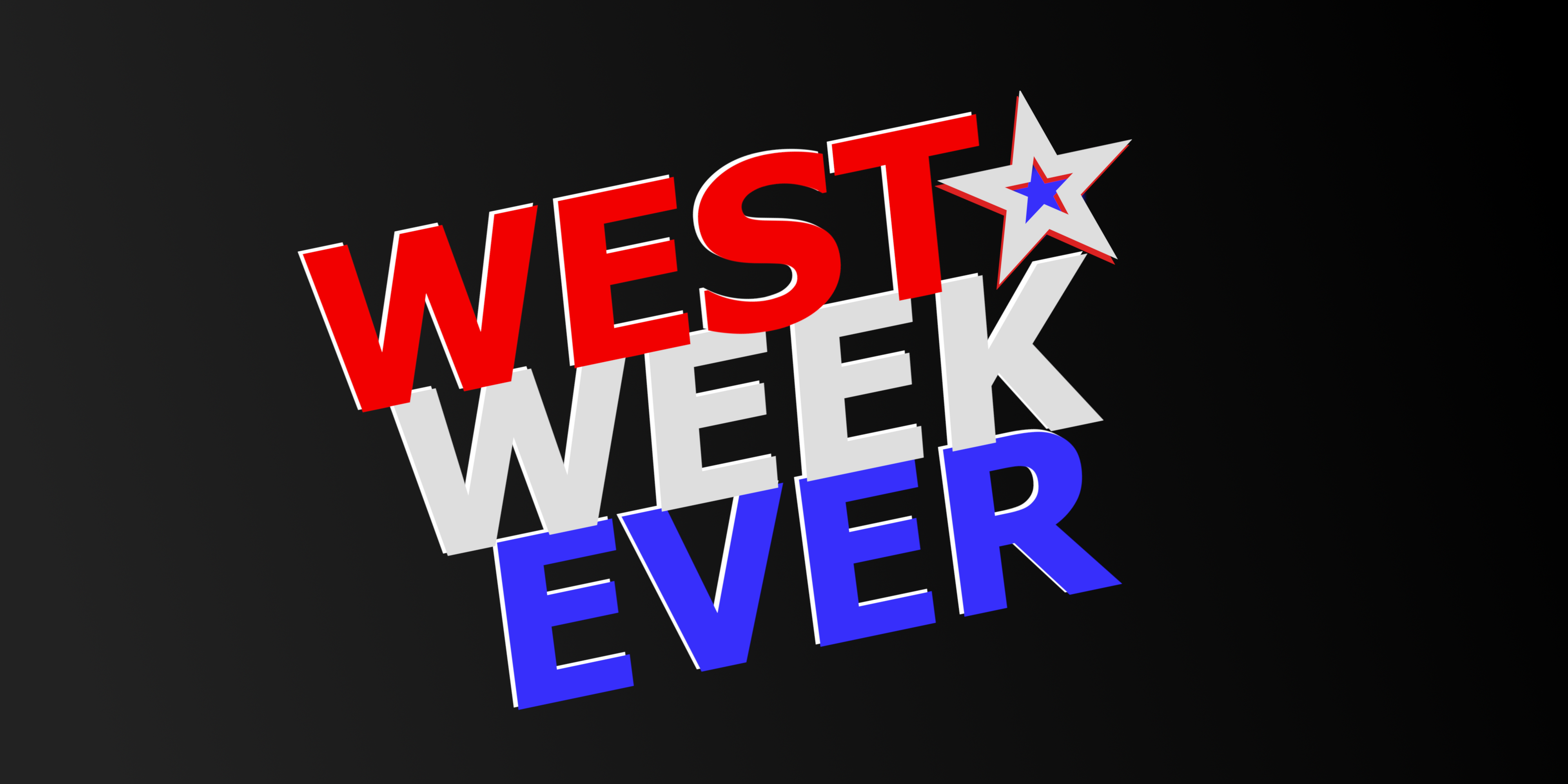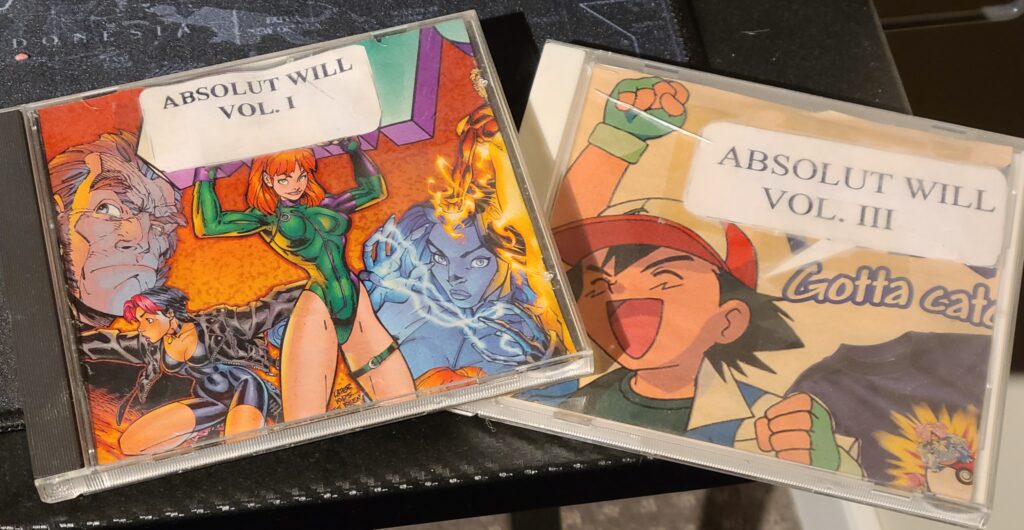
This post was written in anger. I mean, this is something I’ve been thinking about for quite some time, but I saw something Friday night that angered me and, thus, this post materialized. You see, I was scrolling through Instagram Stories, and one of those Millennial-centered nostalgia accounts posted a video where the creator was basically trying to explain the file-sharing program LimeWire to the youth of today. In her explanation, she said “…you also may have heard of Napster, but they were the same thing.” OH, NO THEY WERE NOT! LimeWire was the Crack to Napster’s Cocaine. Plain and simple. Do not EVER try to say those 2 experiences were the same. I don’t remember Metallica suing LimeWire! I don’t know who even created LimeWire, but I sure as Hell know who Shawn Fanning is! To further the drug analogy, Napster was like going to a fancy turn-of-the-century opium den, while LimeWire was like sharing needles with vagrants. It constantly amazes me how often these 2 are brought up as “equals” in conversation. No, we need to take a look back at the music industry, and how folks have gotten it so, so wrong with their revisionist history.
A few months back, I was at a Going Away party for a colleague when the young folks started comparing their streaming subscriptions. “I use Apple Music.” “Yeah, well I use Tidal.” We all kinda side-eyed that chick. Jay-Z doesn’t even use Tidal anymore! Anyway, I couldn’t hold in my laughter, and finally just asked, “You guys pay for music?!” They looked at me like I was speaking a foreign language. One replied, “Well, yeah. I mean, what do you use for music?” I was like, “The radio. It’s free.” They were in disbelief. “But what about playlists?!” I told them that I don’t really like playlists, as I like the “mystery” of what’s coming next. I mean, that Shuffle feature on old CD players existed for a reason, so I know I’m not alone, and I feel the creation of a playlist sort of defeats that experience. “Well, what do you do when you want to hear a particular song?” Again, I replied, “YouTube. It’s also free.” They just couldn’t understand my Old Man Ways. Like any Old Man, I feel like everything in “my day” was harder, but also made more sense. So, this took me down Memory Lane.
Now, before we jump into my life of crime, I feel the need to sort of set the scene as to how I ended up where I did. You see, my hobbies weren’t always toys and comic books. It’s funny how I’ve rambled for 2 decades, yet there’s still some things I’ve never really discussed. At least, not recently. So, in high school, I sort of put aside those interests, and I totally threw myself into music. I would buy anything and everything. Folks today will say “Oh, Will only listens to Country”, but nothing could be further from the truth. I honestly didn’t even fall into Country until I met my wife, as that was what she was into at the time. High school was an interesting turning point for music, as there were a bunch of cultural shifts going on. At the end of 8th grade, all of my friends were listening to Alternative, and The local HFStival was one of the biggest music fests on the East Coast. I was there for Nirvana: MTV Unplugged In New York. I was there for Dookie. In fact, I bought the *cassette* of Dookie to take with me to Russia. That all changed in ’96, however, as a new radio station called Z104 launched in the DC area.
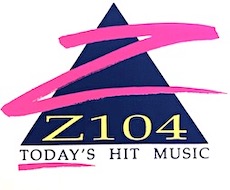
While it was touted as playing “Today’s Hit Music”, the first few months of Z104 seemed to revolve around them playing Ultimate Dance Party 1996 on repeat. This was important, though, because Pop had been “dead”. The Paula Abdul/NKOTB era had ended around early 1994, as that stuff was no longer seen as “cool”. I would go as far to say that Ace of Base’s The Sign was probably the last big release of that era. While it might not seem like a long period of time, what followed was a VERY dry period for Pop music, up until the release of Mariah Carey’s Daydream in October of ’95 – itself an important release, as that’s the turning point when Mariah started focusing on Black audiences. Her new songs were more Pop than her earlier Adult Contemporary stuff, and she was now doing collabs with new whippersnappers, like someone named Sean “Puffy” Combs. Folks never really talk about how important “Fantasy” was for her reinvention, but I digress…
Anyway, these new styles needed a place for airplay, and that’s where Z104 came in. DJ Matthew Blades introduced us to Mr. President, Fun Factory, and a bunch of other European acts that never really made a dent in the States. However, this also opened the door for later acts like Savage Garden (If I ever hear “Truly, Madly, Deeply” again I might hurt someone), Spice Girls and, eventually Backstreet Boys, Britney Spears, and *NSYNC. Meanwhile, we were also seeing the debut of future legends on other formats, like Alanis Morissette and Foo Fighters. And don’t even get me started on what was happening in Hip Hop! This is all to say there was a LOT of new music coming out, and I wanted ALL of it. I was buying albums and CD singles and CD Maxi singles left and right. Any dime I got went towards new music. It was a MESS. I joined both BMG AND Columbia House. I looked for anything I could find to help me save money on new music discovery. I went off to Cornell with two Case Logic binders with roughly 600 CDs, and it didn’t stop there! College, however, opened up an entirely new world for me, and I ain’t talking about alcohol and sex!
Younger folks never understand this concept, but I didn’t have the internet at home in high school. We once partook of an AOL disc promo, and there was a time we did a NetZero trial, but the internet was not a common fixture in our house. Now, this isn’t one of those “It was the times” situations, as everyone else I knew had internet. They had, at minimum, a 56K modem and an AOL account. Not me, though! I think my dumb old Pentium I had a 14.4 modem (Nope, not even a 28.8). I used to have to go check my email at my neighbors’ house, as they had WebTV. So, getting to college, where there was a T3 connection, was life changing for me – in a really bad way. It’s basically like going to an addict, saying, “Remember how you used to spend so much money on cocaine? Well, here’s heroin, and it’s FREE!” My freshman year was a complete wash. I know many folks have that college experience, but mine wasn’t due to socializing or embracing my “newfound freedom” or whatever. No, I was glued to my computer, day and night. I was skipping class, I wasn’t sleeping. Did you know there was only ONE website dedicated to the show Team Knight Rider at that time? Also, do you know how long it took me to find that site?
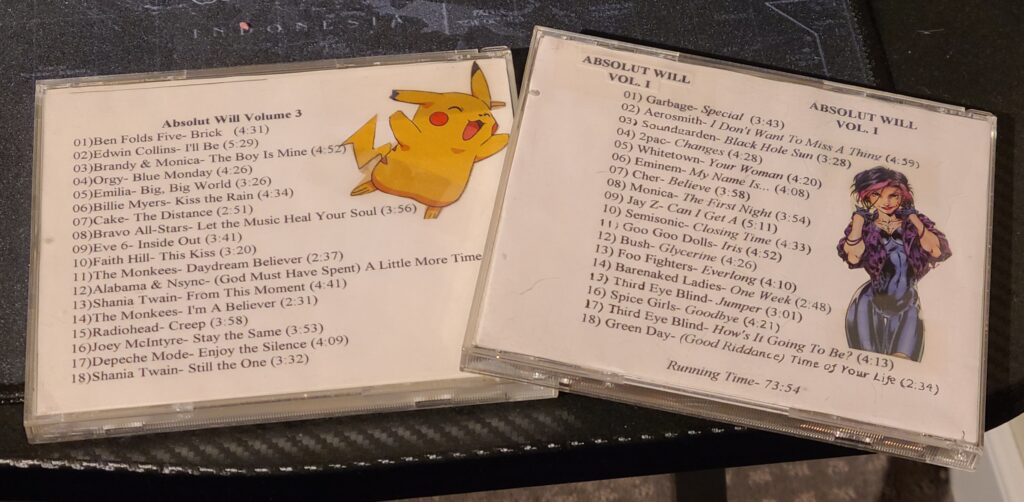
Anyway, what really set me on the wrong path was when I discovered you could use the internet to find music, and that my super fast college connection would let me download it. Then, I could use these newfangled things called “CD Burners” and record these downloaded songs onto a CD-R (Never use a CD-RW, as those things cost more, and “coastered” more frequently than a non-rewriteable disc). Sure, we’d all experienced downloading a Playboy centerfold, and waiting the 20 minutes for the file to load, but this was a whole new ballgame! I know I wasn’t alone with these feelings, but most folks remember this era, and they look back fondly on the Napsters and the Kazaas of the time. That wasn’t The Beginning, though. What if I told you there was a much more exciting – and dangerous – method of music piracy, before those apps even hit the scene?
Prior to peer-to-peer file sharing and bit torrent, there were these things called Warez sites. Now, I always assumed it was pronounced “Wairs”, but my Engineering major roommate pronounced it “Wah-rez”, like the name of some kind of town in Mexico. I think I’m right, as it was basically a truncated, plural way to say “software”, but it might be another “gif” vs “jif” debate. You could find a lot of different stuff on these sites, as they were capitalizing on faster internet being available to more and more people, and everything you found was illegal. There was the aforementioned software. Don’t feel like buying Microsoft Office? Here ya go! Want some swanky Winamp skins (Winamp was the app we used to play our illegal music, kids)? Not a problem, sir! You could also find TV shows, but they were encoded to play on RealPlayer, and looked like garbage by modern day standards.
The most important thing about Warez sites, however, is that nothing was ever actually hosted on the sites themselves. Instead, you treated the site like the Yellow Pages (Again, kids, this is what we used to find folks’ addresses and phone numbers before Google), and you’d search for a working link for the thing you were after. I say “working link” because these things were constantly being taken down, so there was only roughly a 60% chance the link was going to work anyway. So, the link would take you to a “mirror site” where the file was actually hosted. But don’t breathe easy just yet! This was only the beginning. You’d download what would be a zip file. Inside that file would be the thing you wanted, as well as a Read Me file. Typically, if you were looking for an album, the file format would not be the expected mp3, but rather a doc or text file. That way, it wouldn’t immediately set off any red flags that it might be illegal music. Usually, the first step of the instructions was “Rename the file to .mp3” or whatever. Then, you’d find the newly renamed file was still password protected, and couldn’t be opened. So, you want the password? They knew you might. The Read Me file would contain a link, which usually took you to a porn site.
At this point I should probably mention that one of the first things you needed to do in this life was set up a second, “dummy” email address. We’re in different times now, as folks create new email addresses at the drop of a hat to scam more free trials to stuff. Back then, however, we treated those things like finite commodities. You were ThighSlayer69, and you’d be ThighSlayer69 til the day you died. It would go on your grad school application, and you’d think nothing of it. So, it never immediately occurred to folks to set up a second email account. But it was crucial for this work. That’s because the Read Me file instructed you to join that porn site’s mailing list. There was no way around this, as the instructions would go on to reveal that you would receive a Welcome email from the site, and the password for the file would actually be something like the 4th word in the 5th paragraph of said email. So, basically, you’re jumping through all these hoops to discover you need to type “wetter” into WinZip. But you’d have your file, filled with some album you didn’t have to pay for!
Did I feel bad about this? Sure. But I also felt I was still investing in the industry legitimately, as I was still buying albums. When I first started doing this, it was mainly to get European releases, as these sites didn’t recognize borders. I’m not sure if folks remember, but import releases were high as Hell. In the days of Tower Records, an import Maxi single might cost you $15. So, you’re paying that for roughly 1 song, 5 remixes of that song (2 of which were Remix Radio Edits), and a B-side that wasn’t good enough for the album. Meanwhile, that same amount almost got you a full album in the US. So, imports were cost prohibitive, but there were European acts I was discovering like Aqua clone Toy Box, and what would become my favorite boyband in the world, Westlife. So, I felt I was “justified” since there was no convenient or affordable alternative.
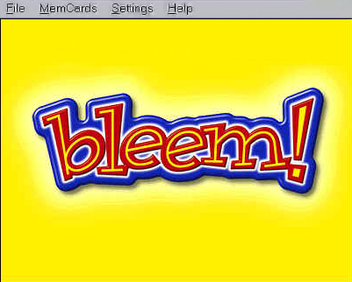
I fully credit this experience for cultivating my love of “The Hunt”, which persists to this day in all my other hobbies. It was exciting going through all these back channels, and solving the “mystery” of BigEuroJugs.fr. That feeling you got when the password went through successfully! After a while, it wasn’t even about the music anymore. I was downloading other stuff, too. For example, there was a program called Bleem! that sort of straddled the line of legality, as it was an emulator – sold in stores, mind you – that allowed you to play Sony Playstation games on your PC. I downloaded this program, and somehow completely crashed my 6 week old computer. Everyone else in my dorm suite was a Computer Science major, and one of the Dans (there were 2) rebuilt my registry and hard drive. But that sort of served as my wake up call that maybe I’d gotten in too deep, in a world I didn’t fully understand. I was finally out…that is, until I heard about this new thing called “Napster”.
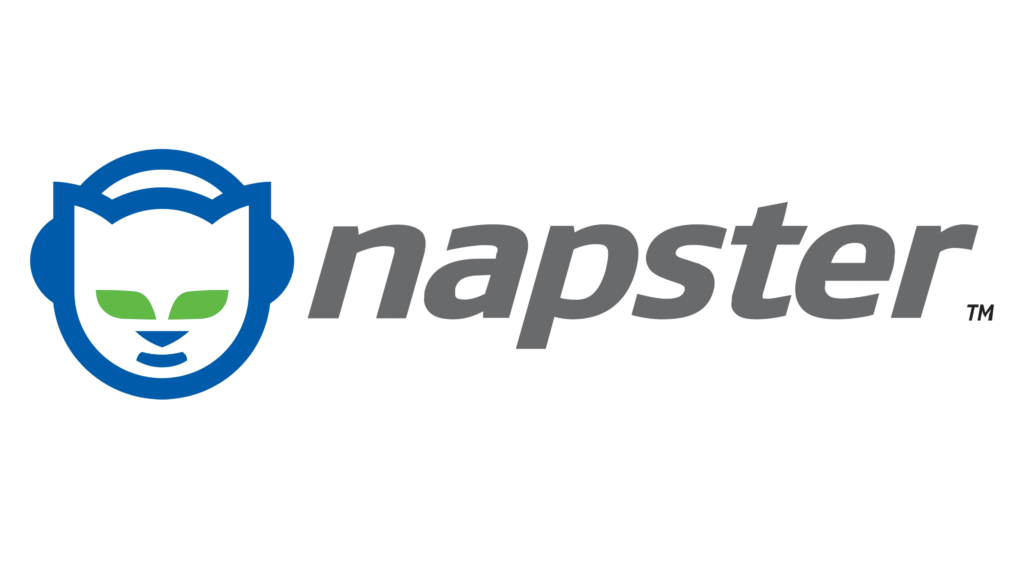
As anyone will tell you, Napster was a game changer. This was the starting point for many, but something of a transition for me. See, up to this point, the Warez sites were just providing full albums. You had to comb through the junk, and hope all the tracks worked. Napster, however, let you search by song. You were no longer hampered by filler tracks and file size. A typical song on mp3 was compressed to just under 4 MB, and you could download that thing in about 20 seconds. So, you could get more surgical in your searches, but it also took up more time than Warez, as you had to be more hands-on, while Warez had more of a “Set it, and forget it” model after you got the ball rolling. Plus, Napster was actually more work if you wanted the complete album. So, it was great for hit singles, but still not the best for deep cuts or full albums, unless you happened to find a user who had the whole thing ripped and waiting in their shared folder. Sometimes, however, you’d have to “Frankenstein” an album from different sources, leading to different bitrates and sound quality between the songs. I didn’t care, though, as this was now a new version of The Hunt. I had leveled up! No longer did I have to worry about the potential viruses that accompanied going to LondonJizzIsFallingDown.co.uk, nor did I have any random sites trying to get me to install their spyware-laden searchbar (That was a really big thing back then, for some reason).
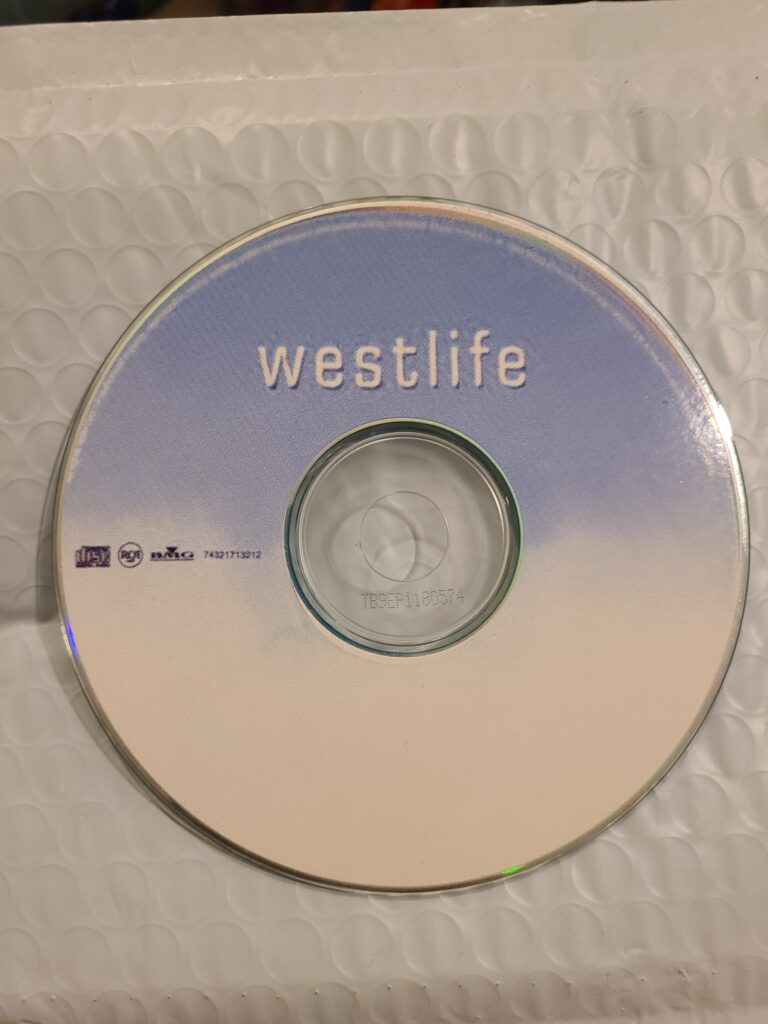
Meanwhile, it opened up other creative avenues for me, as I started designing jewel case liners for the discs I was burning, and I was printing out disc labels to make them look professional (i.e. “official”). No, I wasn’t selling them, as there was no money to be made. By this point, we all had Napster, and were doing the same stuff. But I love branding, and remember I created my own mix compilations called Absolut Will, or sometimes AW: That’s What I Call Good Music. Plus, I discovered more and more new music genres and artists. I, like my peers, was having a ball, but history has taught us that nothing good lasts forever.
The music industry hated Napster because it was stealing money out of their pockets – both labels and artists. We didn’t really think of indie artists back then, though. Today, they’ll lament the fact that streaming pays them a fraction of a penny per stream, but they weren’t even in the conversation at that time. We figured Guster loved us stealing their music, because then our Student Activities Committee would want to hire them for Slope Day, as college shows seemed to be their bread and butter, ya know? No, instead we were like, “Madonna is rich enough. She doesn’t need more money.” College kids, amirite? Artists, however, were getting fed up and started fighting back. I mentioned Madonna because in the run-up to the release of her album Music, there was this mad dash to get what we thought was going to be the lead single. Instead, while labeled as a Madonna song, when you downloaded it, it was actually a clip of her asking “What the fuck do you think you’re doing?”, followed by silence. I remember that file catching me off guard, and thinking “So, I guess we’re going to war.” We were undeterred at that point, thinking it was cute that she thought she was gonna stop us, but WE ARE THE FUTURE!
Then Metallica started suing folks. And it’s not like they just sued Napster. No, file sharing in general was an undiscovered country, in the legal sense, so there wasn’t really a roadmap. So Metallica went after the users – college kids like me. So, you’ve got some kid on scholarship and student loans, being sued for MILLIONS because he had a copy of “The Unforgiven II” on his hard drive. You’d think that it was just an isolated incident, to “make an example”, but they didn’t stop. Metallica sued a LOT of people. I don’t even know how those cases shook out. But it seemed like they somehow got Napster’s cooperation, so they were basically going down a list. We were all scrambling to ensure we didn’t have any of their songs, but that wasn’t so easy for me. Ya see, I was an mpjunkie at that point. I didn’t even know WHAT I had. I was just rolling around in my own digital filth. I remember one particular afternoon, where it was sort of known they were on the rampage, and my Napster account sort of locked up. I quickly uninstalled it and cut all ties, because it felt like I was in their sights. Now, looking back, they could have traced IP addresses and whatnot, but colleges and universities didn’t exactly have official internet usage policies yet. Cornell and other institutions had to scramble to draw up something that would absolve them in cases like these. Unlike The Bleem! Incident, I still hadn’t learned my lesson, and I reinstalled the program within days. Seemed like the heat was off, right?
Soon afterward, the Recording Industry Association of America sued Napster for the illegal distribution of copyrighted material. Napster’s defense was that the program itself didn’t actually house the music, so how could they be at fault? No, the music resided on the hard drives of its users, and therefore couldn’t be blamed on Napster. The irony of the lawsuit is that it served as great publicity for the service, and resulted in a huge increase in users who were now finding out about it for the first time. Still, the site was shut down in July 2001, and Napster was ordered to pay $26 million to copyright owners. In order to pay these bills, the site tried to switch to a subscription model, but as our greatest rappers have informed us, “You can’t turn a ho into a housewife”. We weren’t about to buy the cow, as we had discovered we were now lactose intolerant. The company was liquidated when its bankruptcy sale was denied, and the brand changed hands from Best Buy to Rhapsody and others. It currently still exists, as a name, but it’s basically the same as how Montgomery Ward still “exists” as a mail order company now. It ain’t the same thing, man!
This is where my path differs from others, as the slightly younger generation moved on to other file sharing programs, like iMesh, Kazaa, and the aforementioned LimeWire. I didn’t respect any of these imposters, however, as none of them offered the same experience to which I’d become accustomed. I’ll admit a part of me initially felt like Napster was something of a cop-out. I mean, I’d been doing the detective work, tracking down Warez passwords, and Napster just took the “edge” out of the pursuit. Still, you couldn’t knock its convenience and effectiveness. Now, at a crossroads, I didn’t feel I could return to my old ways, as the Warez empires had fallen. I briefly used LimeWire, but its legacy was that it had more viruses than a sailor coming back from shore leave. It’s both a joke and a fact how that program destroyed many a family computer. So, I didn’t stick with it for long. Meanwhile, iMesh and Kazaa were also poor substitutes for Napster, so I pretty much just went back to buying music. I didn’t buy as much, but I bought. I eventually made it up to three Case Logic binders until I just stopped using them altogether.
Looking back on what I did during that time, do I feel bad? No. I know I’m supposed to, but that whole thing was the equivalent of the FBI warning that used to come on when you watched VHS movies. Folks were still copying those things, and the studios and actors still made their money. I sometimes wonder how many artists’ dreams were dashed by having their music leaked, but I feel like that number is, or close to, zero. In fact, studies showed that a presence on Napster actually helped artists’ sales, as it helped spread awareness of them and their music. One example that gets cited a lot is how Napster helped make a hit out of Radiohead’s Kid A album.
Yes, it’s “stealing”, but to get real philosophical about it, should we be expected to pay for art? All I’m saying is Madonna and Metallica are still rich, and I think we only feel bad about music piracy because we’re told we should feel bad. I wasn’t doing it to “get over on The Man”, but rather to be able to experience even MORE of something that I loved. I resorted to it because the things that interested me weren’t readily available to me, and this is how I had to acquire them. I discovered a lot of great music and artists that shaped me during a formative period in my life, and I’d do it all again in a heartbeat. If I’m being honest with myself, I didn’t stop engaging in music piracy because of some sort of moral epiphany. Instead, the entire process became inconvenient. It was simply more trouble than it was worth. Music fans today don’t realize how great they’ve got it. Meanwhile, it seems the streaming payout model is ripping off artists more than Napster leaks ever did. Funny how that works.
Anyway, take my word for it that Napster and LimeWire were not the same thing, and don’t let anyone tell you differently. Nothing since has captured the experience of using Napster, and its ability to introduce the user to new music was second to none. I suppose streaming has filled that role now, but I’m still not signing up for Tidal!
